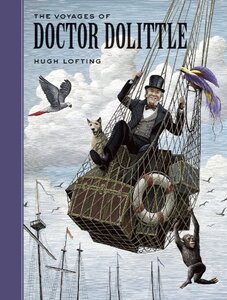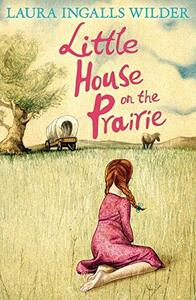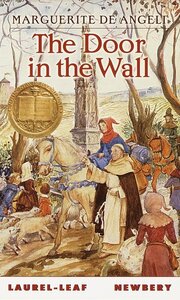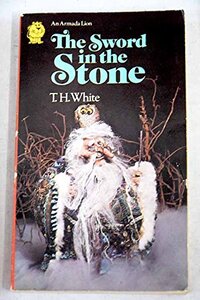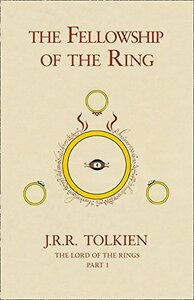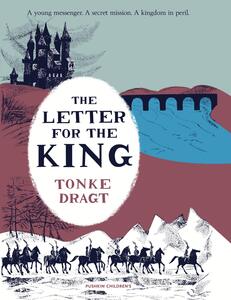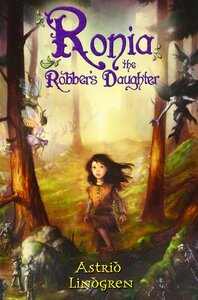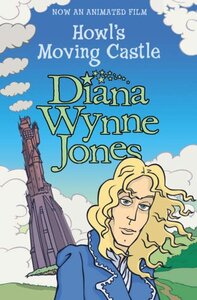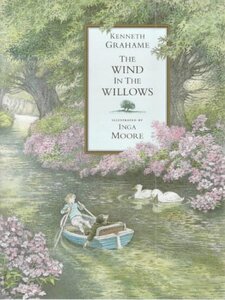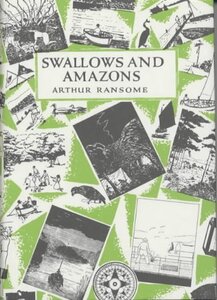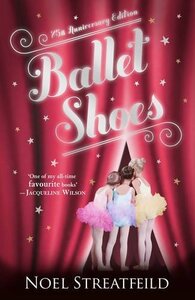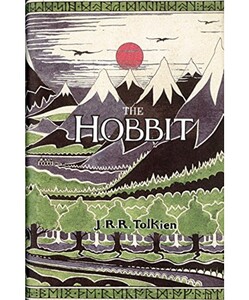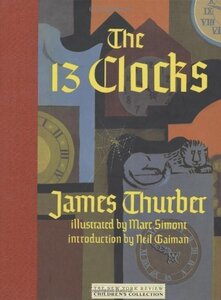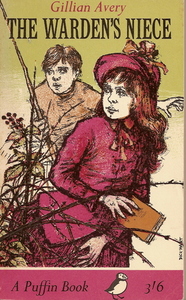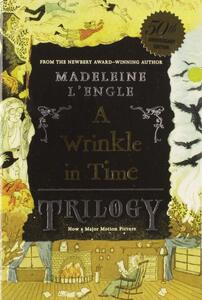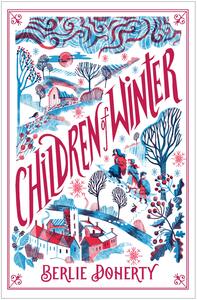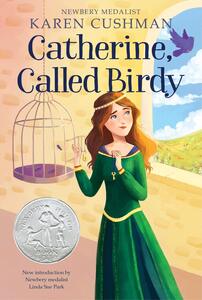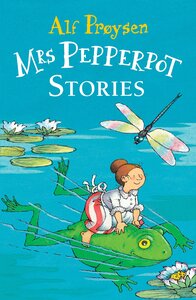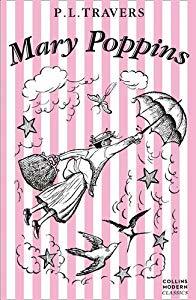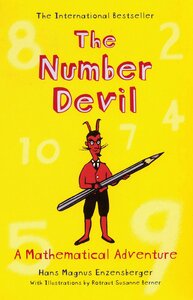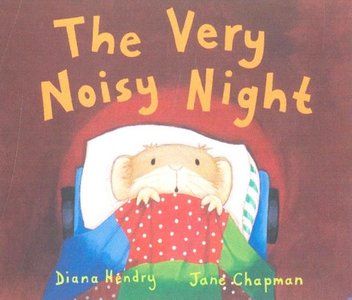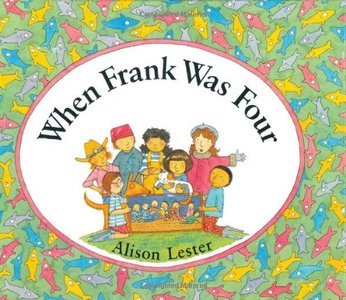Classics still dominate Helen's reading. Six months ago she read the remaining Anne of Green Gables books and then reread them all. And she's just reread The Lord of the Rings. Other classics include Hugh Lofting's Voyages of Dr Dolittle and The Story of Dr Dolittle (1920), Laura Ingalls Wilder's Little House in the Big Woods (1932), T.E. White's The Sword in the Stone (1938), Marguerite De Angeli's The Door in the Wall (1949), Tonke Dragt's Letter for the King (1962) and Secrets of the Wild Wood, Astrid Lindgren's Ronia the Robber's Daughter (1981), and Diana Wynne-Jones' Howl's Moving Castle (1986).
more
The Oxfordshire library system has a lot of older books in storage (the "fiction reserve") - you won't find them on the shelves, but they're in the catalogue and you can reserve them for pickup. One of the nice things about these older books is that they still have stamped dates and card sleeves in their front covers. So we can see that this copy of Moonfleet was bought in 1972 for £1.50, and that it was being borrowed quite regularly between 2008 and 2010.
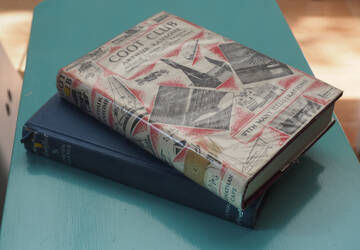
Coot Club and Moonfleet
|
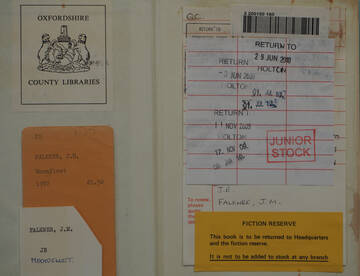
the front of Moonfleet
|
more
Much of Helen's reading has consisted of older classics: Kenneth Grahame's The Wind in the Willows (1908), Arthur Ransome's Swallows and Amazons (1930), Noel Streatfeild's Ballet Shoes (1936), J.R.R. Tolkien's The Hobbit (1937), James Thurber's The 13 Clocks (1950), Gillian Avery's The Warden's Niece (1957), Madeleine l'Engle's A Wrinkle in Time (1962), Maurice Druon's Memoirs of Zeus (1964), Berlie Doherty's Children of Winter (1985), and Karen Cushman's Catherine, Called Birdy (1994). (She didn't read these in chronological order!)
more
I had thought all my early childhood books were gone — sadly, at some point when I was a teenager I culled them as too childish, leaving only the "young adult" ones — but my sister saved our copy of Gerald Durrell's The Talking Parcel and has given it to Helen, who loves it. Reading that brought back memories, and I think this must have been one of the books I read many times as a child. more
Getting Helen started on new books can be difficult, so it's a lot easier when she reads longer ones. She read Carole Satyamurti's retelling of the Mahabharata, which is 900 pages long and took her three weeks, and then launched straight into Stephen Fry's Mythos, which kept her out of mischief for six days. And now she's started on Gustav Schwab's Gods and Heroes of Ancient Greece. more
Helen is rarely an avid reader. If she gets stuck into something she'll go through it eagerly, and she can reread books or entire series she loves, but otherwise she'll pretty much never sit down and start reading if there's playing to be done instead. Most of her reading is done in bed, before going to sleep or (in these days without school) on waking up.
The major constraint on her reading is scariness, which includes broader emotional stress - Hugh and Jonathan parting in Brother Dusty-Feet (which I had to read the last chapters of to her) was almost as bad as Pheasant being shot in The Animals of Farthing Wood (which she abandoned). Once she knows a book she's usually ok to read it again (though she's stalled at "Riddles in the Dark" in The Hobbit, which I've read to her). more
Helen complained that she wasn't doing any history. I had to break it to her that reading books on the First and Second World Wars, a historical novel set in Tudor London, and a loosely fictionalised art history survey counted as doing history, and that if she were to study history at Oxford it would actually be described as "reading history" - and probably wouldn't involve re-enactments of the Great Fire of London. more
The last six months have been dominated by a few series and rereading of favourite books, but have also seen Helen tackling her first really solid novels.
Books that Helen has read and reread include Alf Prøysen's Mrs Pepperpot Stories (a chance secondhand dicovery), Pamela Travers' Mary Poppins books, and Hans Magnus Enzensberger's The Number Devil. more
I've been reading books published by Archipelago Books for some time, but a few months ago, in a fit of madness, I became a subscribing member, which means I get all their new books, roughly one a month. more
The last couple of months have seen an explosion not in the scope of Helen's reading but in the amount of time she spends reading. She'll almost always prefer friends or games, but she can read for an hour at a stretch in the right circumstances. (When I was in Year 1, I used to sit and read in the playground while everyone else ran around. I'm glad Helen is more sociable than that!) more
I snuck into the Oxford Reading Spree, a one-day conference for teachers on books and reading, which I knew about because it was being run at my daughter's school and organised by one of the teachers there. more
Helen is still going back and rereading them by herself, but we're slowly moving out of picturebook age and I can't see us buying many more. So now seems like a good time to offer up a list of our favourites. These are some of the ones we loved, and which we read and reread and will probably keep. They are in no particular order below, but grouped to make my commentary easier. Most of them are classics, but there are a few lesser known books and authors in there. (I will cover non-fiction in a separate post.)
more
Learning to read is not something that ever finishes. I'm still learning new words and improving my understanding of morphology, etymology, syntax, style, and so forth. But Helen can read now, in the sense that the problems she faces reading are mostly the same ones an adult faces, albeit at higher frequency and in a different mix, rather than the basic decoding she was struggling with a year ago. more
There are many different metrics for measuring text complexity. The two I find most interesting are Lexiles and ATOS Book Levels, because there are online tools that give these measures for many popular children's books. (The Lexile scheme seems to have better coverage of American books and the ATOS one of British books.)
These tools should be used with caution, perhaps for comparisons of books in the same genres and styles — or working out which of an author's books it might be best to start with. They may help parents (or teachers) who are trying to vary what they offer children, perhaps supplementing
graded readers, but they can't replace a librarian or an experienced teacher.
Apart from any other concerns, these metrics offer no guide to quality! more
While Camilla was doing a choir conducting course, Helen and I went to a fantastic Ashurbanipal exhibition at the British Museum. For a while I was afraid she was going to insist on reading every word on every board and caption. Eventually she got tired and let me read them to her instead, but we were there until the exhibition closed and she must have read almost half the text in it.
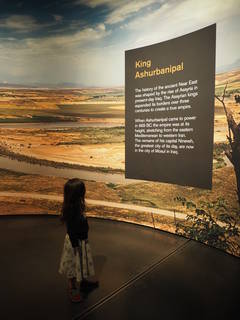
Lo, all our pomp of yesterday
is one with Nineveh and Tyre!
|
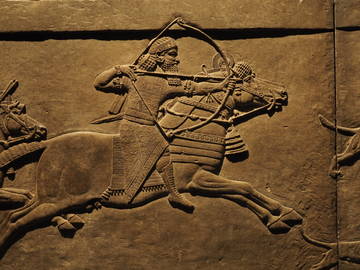
even in hunting scenes, Ashurbanipal is depicted with a stylus in his belt; he was proud of being able to read and write Akkadian and Sumerian
|
more
If your school tells you your child is supposed to read to you four times a week, but they don't want to do that or don't like doing that, don't make them read. more
I got a new kindle for my birthday, so I deleted everything off the old one except the children's books, renamed it, and voila! Helen now has a kindle. And she read her first book on it - Roald Dahl's The Twits - pretty much in one sitting. more
Helen's school uses Oxford Reading Tree graded readers, as do apparently 80% of English schools. ("Nobody ever got fired for choosing IBM.") I mostly ignored these when she brought them home, since she was happy to read them at school and we had more interesting things to read, so I missed the clear "Stage N" on the back covers and it was a while before I realised these were graded into quite narrow bands. more
An update on Helen's reading, following on from reading at five. more
My plans for formal early years teaching all came to nothing. more
